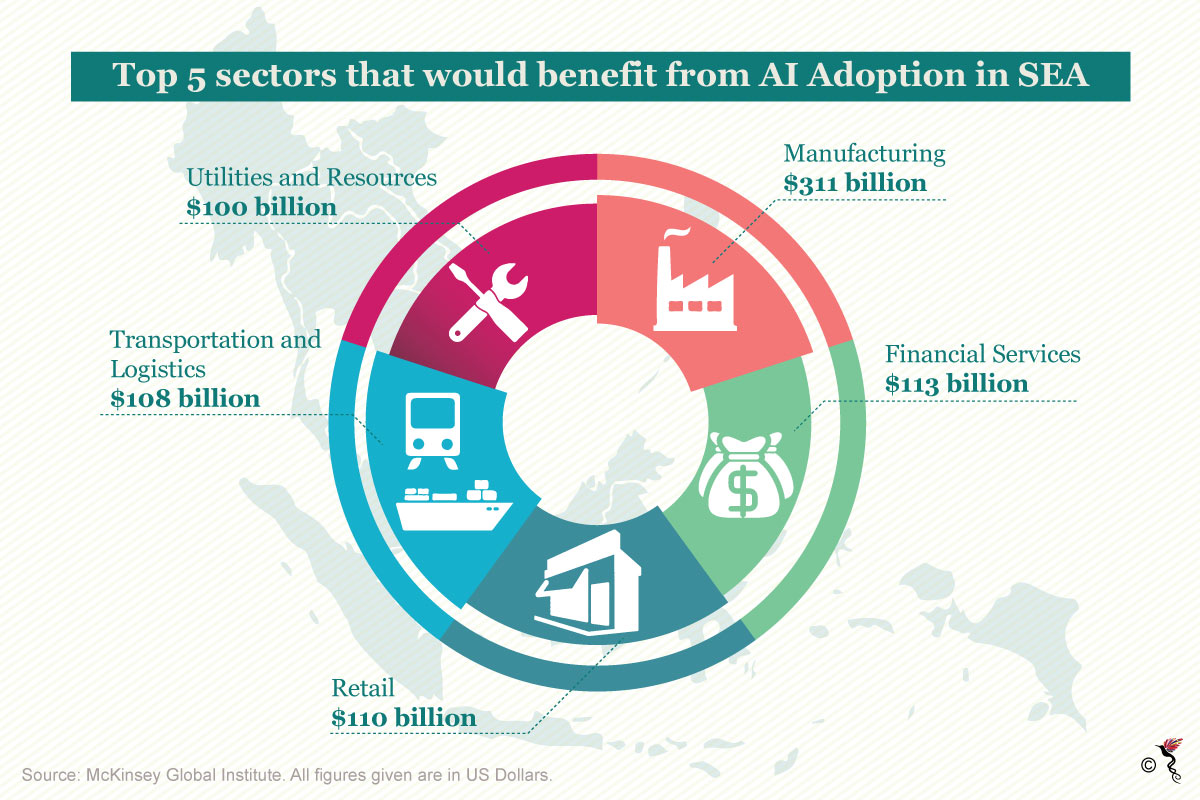Artificial Intelligence (AI) has become a polarising subject in recent years. There are technology luminaries who are avid proponents, like Mark Zuckerberg, and those who have shared serious misgivings, like Elon Musk.
Much of the opposition to AI development hinges on a concept once found in science fiction novels – AI’s ability to outthink and outmanoeuvre humans.
Recent examples, like Google’s AlphaGo defeating 18-time Go champion Lee Sedol, have given the public a reason to pause. Why? Because if a machine can learn to master a game that requires a feel for contextual decisions, what would be next?
More fears were stoked this year when an initial report claimed that Facebook had shut down an AI project because their machines had begun to speak in their own language. This was later debunked, but there are many who only remember the initial headlines.
All of these fears, rational or not, cannot hide the truth: AI adoption could create serious economic benefits for Southeast Asia.
A recent report from McKinsey Global Institute has estimated that regional organisations who proactively adopt AI could create hundreds of billions of dollars in economic value.
Before this value can be created, Diaan-Yi Lin, Managing Partner of McKinsey Global Institute in Singapore, says that many companies still need to overcome talent barriers.
“The playbook for adopting AI is similar to that for adopting other digital technologies: create robust systems for collecting, organising, and storing data; embrace a culture of making decisions based on data; and train and hire the right talent, from the data scientists who work directly with AI systems, to ‘business translators’ who act as an intellectual bridge between managers and technical experts,” said Lin.
Developments in AI and the opportunities that they present for the Southeast Asian region will make it hard for governments and corporations to avoid the subject.
First, traditional industries could see positive effects. According to Raja Hamzah Abidin of RHL Ventures, AI could help make companies like Malaysia’s Top Glove more efficient by streamlining their manufacturing processes. Doing so would not only reduce the reliance on foreign labour, but also help local workers learn more skills that make them more productive and give them access to higher paying jobs.
Sectors like healthcare also stand to benefit immensely and there is already a wave of AI adoption happening around Asia.
A recent example is the collaboration between Huawei and Philips to provide a cloud healthcare solution in China. Their software allows patients to track their health and have remote access to doctors, who are also assisted by AI that cuts down on repetitive tasks and analyses huge amounts of data. Such a solution would certainly be a boon to the Southeast Asian region, especially in its rural areas.

Top five sectors that would benefit from AI in Southeast Asia. Source: McKinsey Global Institute.
On a country level, nations like Singapore have also taken note. Earlier this year, their government began a national initiative called AI.SG, a government venture that will invest up to 107 million dollars over the next five years to explore how AI can improve their finance, city management and healthcare sectors.
AI adoption by companies and government organisations in ASEAN member states will continue to grow in the coming years. The only variable that remains is the speed of adoption.
